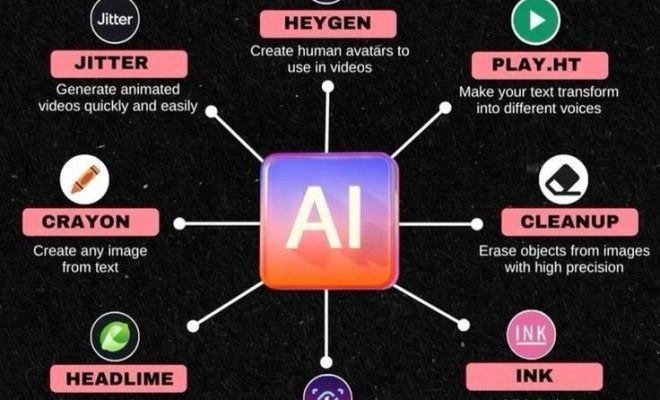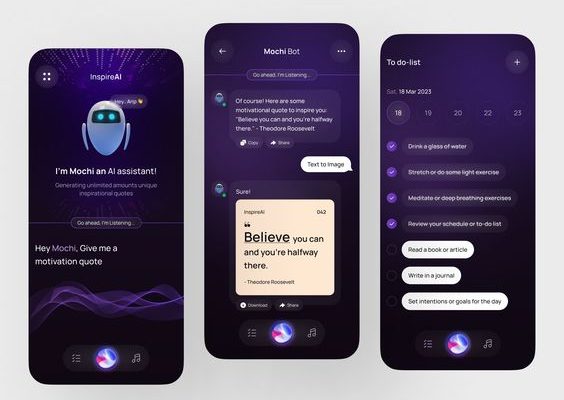Using Artificial Intelligence and Data to Personalize Higher Education

Artificial intelligence is rapidly transforming and improving the ways that industries such as healthcare, banking, energy, and retail operations function. However, there is one industry that offers incredible potential for the application of artificial intelligence technologies: education. The introduction of artificial intelligence can bring significant opportunities and challenges to higher education.
Personalized learning and the challenges of higher ed
Institutions of higher education face a broad range of challenges, including disengaged learners, high dropout rates, and the ineffectiveness of a conventional “one-size-fits-all” way of teaching. When data analytics and artificial intelligence are used responsibly, personalized learning activities can be created that might, in turn, help to resolve some of these challenges.
With a personalized learning experience, every learner would enjoy a unique educational approach that’s fully tailored to his or her abilities and needs. This could directly increase learners’ motivation and reduce their likelihood of dropping out. It could also offer professors a better comprehension of each learner’s learning process, which could enable them to teach more effectively. Here’s what this might look like: Artificial intelligence-based learning systems would give professors useful information about learners’ learning styles, abilities, and progress; these systems would also suggest ways to customize teaching methods to a learner’s individual needs.
For instance, some learners might be experiencing learning difficulties or require tutoring to keep up. Some might be advancing so rapidly that they are not intellectually challenged and would benefit from additional study materials or assignments. In both scenarios, artificial intelligence learning systems would help learners reach their full potential by identifying problems early enough to allow for appropriate corrective measures to be taken, possibly preventing learners from dropping out.
For an artificial intelligence-based learning system to work properly, big data would be needed to train it. As discussed later in this article, data would need to be used ethically, and learners need to be informed about how their data might be shared and used by artificial intelligence algorithms.
Why personal data is so important
In theory, the application of artificial intelligence and personalized learning sounds like a perfect solution to some of the most widespread educational issues. However, AI technology still has a long way to go before it can fully realize its potential.
We all know that the main ingredient of personalized learning is a large amount of learner data. My own experience in lecturing at universities around the world has shown me that today’s learners are more protective of the privacy of their data than previous generations, most likely due to the security breaches and data scandals they’ve been exposed to. However, if learner data can be collected and processed in a way that is ethical, secure, and transparent, it will allow artificial intelligence to be used to effectively improve just about every area of study.
Chatbots can give students much-needed assistance
The University of Murcia in Spain began testing an artificial intelligence-enabled chatbot to answer learners’ questions about the university and its areas of study. The school’s administrators were surprised to find out that the chatbot was able to answer more than 38,708 questions, answering correctly more than 91% of the time. This chatbot provided immediate answers to learners outside regular office hours, but university officials also found that the chatbot increased learner motivation. Benefits were achieved without the need to change the organization of the staff.
An additional benefit of having chatbots to answer learners’ questions is the large volume of big data that would be obtained regarding learners’ concerns and areas of interest. This data could be analyzed to help universities create innovative new services and programs to further improve learners’ educational experiences.
Issues that lie ahead
As universities start to apply artificial intelligence to different operations, they will likely find that there are still several challenges to be resolved. The most crucial point to address is how colleges and universities can best prepare learners for the new tech-based world and the most disruptive technologies that will change the way people work.
Learners must understand that, over time, routine tasks will be automated by artificial intelligence, automation, and robots. However, there will always be roles requiring creativity, cognition, and emotional intelligence. Most universities around the world are failing to teach learners about the kinds of skills that will and will not be needed in their future careers.
The best results will come from combining artificial intelligence and human abilities as artificial intelligence is applied in the field of education. There will never be a time or place when humans aren’t needed for tasks related to education. For instance, educators will always play a crucial role in our society, and we must never underestimate the value of human interaction and critical thinking in education.
Even though algorithms can help guide decisions, not all educational activities should be run by robots and algorithms. The assistance provided by artificial intelligence algorithms should instead be leveraged to support the creation of optimal learning environments. For instance, artificial intelligence-based learning systems would be excellent tools for teaching rule-based subjects like foreign languages and math. Artificial intelligence systems could significantly enhance the teaching and learning process by providing greater precision and more accurate feedback.
They would also allow learners to repeat study exercises as many times as necessary. However, an educator would still be needed to help explain whatever learners don’t understand, like the nuances and exceptions to rules of languages or how to use mathematical formulas to solve math problems. The professor’s role would be to mentor learners, helping them to understand what they’ve learned, why it’s essential, and how it can be applied in the real world.
A final significant challenge in the implementation of artificial intelligence technologies is the oversight of data usage. Complicated and essential decisions will need to be made on every level of society about data ownership and the best ways to utilize data transparently ethically.
Although artificial intelligence offers the most exciting developments, especially for improving education around the world, we are still in the early stages of its utilization. More experimentation and research are necessary for artificial intelligence tools to be effectively implemented in higher education institutions.
I would advise more university leaders and administrators to become proactive in initiating pilot programs to test the use of artificial intelligence, while critically contemplating the results and the ethical obligations that must be met along the way. Also, learners should learn how algorithms utilize data to make decisions, and their input into the creation and development of artificial intelligence systems should be encouraged. Above all, learners should remain informed about how their data is being used.
Concluding thoughts
Now you know how to use data and artificial intelligence to personalize learning in higher education. Do you have any additional tips, techniques, or strategies that you would like to share with our readers? If so, leave them in the comment section below.






